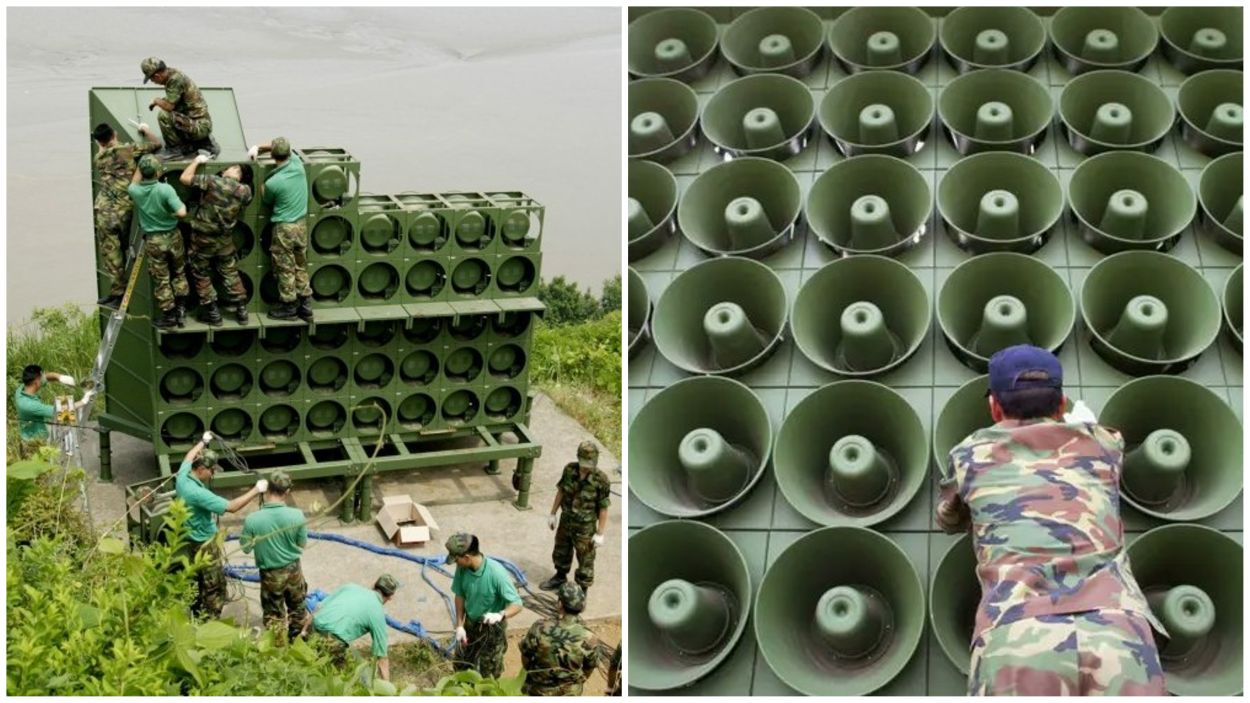North Korea has recently started broadcasting disturbing sounds into South Korea, severely impacting residents near the Demilitarized Zone (DMZ). Inhabitants of Dangsan, a small village adjacent to the DMZ, report that these relentless noises—from gong-like crashes to ghostly screams—have rendered their lives intolerable, describing the experience as “noise bombing.”
Residents express significant distress, with one explaining to the NY Times, “It is driving us crazy. You can’t sleep at night. It’s like bombing without shells.” Since July, North Korea’s loudspeakers have blared these unsettling noises continuously, replacing the usual propaganda with aural disturbances that cause insomnia, headaches, and severe stress.
The sounds, ranging from metallic grinding to howling wolves or even simulated artillery fire, lack any clear message, unlike past propaganda that featured music and speech. “At least the old broadcasts were human sounds we could bear,” one villager lamented, nostalgic for the relative normalcy of earlier broadcasts.
This strategy marks a shift in the ongoing tensions between North Korea and South Korea. Following North Korean leader Kim Jong-un’s cessation of dialogue with South Korea and the US, South Korean President Yoon Suk Yeol has escalated military drills with allies and reinstated propaganda broadcasts directed at the North.
North Korea's weapon against South Korea: Deafening noise
Since July, North Korea has ramped up its use of loudspeakers along the border, blasting unsettling sounds for up to 24 hours daily, escalating tensions along the Demilitarized Zone (DMZ). pic.twitter.com/NTo00QnNhE
— Clash Report (@clashreport) November 16, 2024In response to South Korean defectors sending anti-Kim leaflets, North Korea had initially retaliated by releasing balloons filled with trash. The South’s subsequent loudspeaker broadcasts of K-pop and news likely prompted North Korea’s current unsettling sonic assault. According to Kang Dong-wan, a North Korea expert, “North Korea knows its propaganda no longer works on South Koreans. The goal of its loudspeakers has changed from spreading propaganda to forcing South Korea to stop its broadcasts and leaflets.”
The psychological impact on the people of Dangsan is profound. Once a peaceful rural community, residents now insulate their homes with Styrofoam and curtail outdoor activities. A 75-year-old resident voiced despair: “The government has abandoned us because we are small in number and mostly old.”
Korean long range sound emitter is back online and proved once again critical 'weapon' to North Korea in DMZ area where the propaganda is more effective than gun and boms.
South Korea decided to operate this devices shortly after North Korea's balloon provoke.
These devices are… pic.twitter.com/wUoTzea7EW
— ハク Mason (@mason_8718) June 5, 2024Despite visits from parliamentarians and heartfelt appeals for aid, the government has only offered temporary solutions, such as double-pane windows and livestock medication. The villagers feel like mere pawns in a relentless geopolitical conflict.
Koh Yu-hwan, a former head of the Korea Institute for National Unification, suggests that the Koreas must return to their previous commitments to avoid mutual slander. However, recent actions by North Korea, including demolishing transport links and disrupting GPS signals near the border, signal an intention to escalate tensions further.






